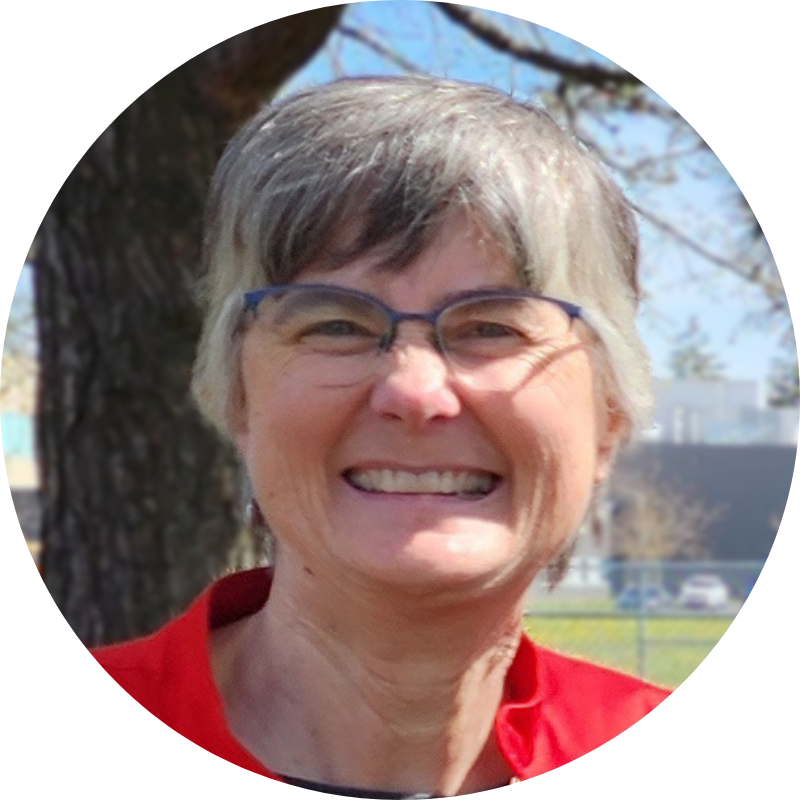Access to Technology
Literacy practitioners know that limited access to technology can create insurmountable barriers for lifelong learners in Ontario.
Learn more about the issue of access to technology
Delivered on Tuesaday, June 3, 2025
With high turnover, effective succession, contingency and onboarding documentation/planning are crucial for the sustainability and resilience of LBS programs.
During the session, guests from the literacy community discussed what they have been doing and shared tools and examples to help participants develop practical file management systems, documentation and plans to ensure smoother operations, staff transitions and the continuity of programs in the face of unexpected challenges.
Insightful tips and best practices were shared to help participants create robust organizational documentation/plans and processes, and provide space to share various examples and ideas.
PRESENTATION SLIDES

VIDEO RECORDING
SHARED RESOURCES
Orientation to Literacy and Basic Skills for Regional Literacy Networks from Literacy Link Eastern Ontario
Hiring in Adult Training from Learning Ontario Central South
Human Resources and Succession Planning Toolkits
Living Manual Example (Google Doc)
Living Manual Example (Force Copy)
PRESENTERS

Carrie Wakeford has been the Executive Director of Learning Ontario Central South (LOCS) for the past 5 years. Prior to coming to LOCS, Carrie was self employed designing and facilitating in person and online training. She also completed research and managed projects for the ministry and for LBS, employment organizations and the Workforce Development Board. Carrie also provided individual career counselling and taught in the Career Development Practitioner program at Conestoga College. In 2019 Carrie won the ‘Outstanding Career Professional Award’ with Career Professionals of Canada. Prior to that she worked in computer training and she managed an employment counselling organization.

Brandy is the Executive Director at Literacy Link Eastern Ontario (LLEO) and she still considers herself new in this position after 2 years. Brandy joined the literacy field after working in libraries for many years including Kingston Frontenac Public Library, Queen’s University Teacher Resource Centre and Brockville Public Library. Brandy is dedicated to social justice, equity, diversity and inclusion. She has received an Ally Award for her work with Brockville Pride and recognition from the Every Kid in Our Community committee as a Youth Asset Builder. She enjoys spending time with her family and cats, and reading is her sport.

Melanie is the Program Coordinator and Academic Advisor for Academic Upgrading at Algonquin College Pembroke Campus. She has worked in various spaces including twenty years in early literacy, 5 years in Employment Services and Ontario Works and the last 5 years in Academic Upgrading. If not spending time in nature with her partner, Josh, she is probably training her cats to walk on a leash … yes, really. Melanie believes that, like chefs, ‘slow is smooth and smooth is fast’ (Work Clean by Dan Charnas) and works to bring processes that will create smoothness for all team members into her daily work.

Alan has been the Executive Director of AlphaPlus since 2015, but his involvement with the organization dates to its founding. As a leader in the literacy field with comprehensive knowledge of the affordances and limitations of educational and administrative uses of technology, Alan advances an understanding of information literacy and blended learning that moves the field forward. He guides the team’s work with adult learning programs to understand, research, plan and integrate emerging digital tools to meet the needs of staff and learners effectively and creatively.
Bio coming soon.
In today’s digital age, building and nurturing a vibrant community is essential for the success of our LBS programs.
In this Showcase, delivered on May 6, 2025, guests presenters from St. Albert Learning Centre in Sudbury and Metro Toronto Movement for Literacy, discussed how they leverage innovative marketing campaigns, podcasts, videos, and other engagement strategies to grow their client base and community connections.
They shared insightful tips and best practices that will help you create lasting connections with your clients and partners.

Ambreen has 20 years of experience in the education field. Possessing a Masters in English Literature and in Educational Planning and Management, she has maintained successful positions as a Vice Principal, English Language Instructor, Manager HR, Communication Executive and Literacy practitioner.
Currently, she is working as an Executive Director at Metro Toronto Movement for Literacy, a non-profit organization that supports adult literacy in Toronto and York Region. Her previous work experience and life-long learning certificates and diplomas bring a wealth of information to develop learning strategies, recruitment procedures and governance.
Her dedication and determination in helping individuals grow and develop are highlighted in all her professional achievements. She is also passionate about volunteering and has been an ardent volunteer in many non-profits across GTA. She loves to cook and paint in her free time.

Susan has been active in adult education since 1986 across a variety of roles and has developed a broad and deep understanding of the field. She has worked as a literacy and basic skills (LBS) assessor, instructor and LBS manager for the Toronto District School Board, and as an assessor and LBS instructor for the Toronto Catholic District School Board.
As a past Vice President on the board of directors, Susan helped the Metro Toronto Movement for Literacy dramatically improve its visibility and the services it provides to the adult education sector.
Susan has developed numerous LBS resources. These include learning resources for Community Legal Education Ontario and a comprehensive Zoom manual for adult educators that’s now being used across Toronto as well as other regions across the province. She has also trained more than 200 LBS, language instruction for newcomers to Canada (LINC) and English as a second language (ESL) instructors on how to use Zoom in the classroom.

Christina brings over 25 years of experience in education and currently serves on the Board of Directors for CESBA, the Ontario Association of Adult and Continuing Education School Board Administrators while also in her fourth year as principal of St. Albert Learning Centre in Sudbury, an adult and alternative education school that offers innovative, community-driven programming for learners of all ages.
Throughout her career, Christina has focused on Special Education and Experiential Learning, primarily as a consultant for the Sudbury Catholic District School Board. Her deep understanding of student needs and commitment to inclusive education inform her work in adult learning and literacy.
Christina’s entrepreneurial spirit has fueled the growth of a student-led business at St. Albert Learning Centre where learners earn secondary school credits while creating and selling handcrafted items. Profits support charitable projects through a parish partnership. This initiative recently earned first place and the national title of Canadian School of the Future in an Innovation Challenge, along with the prestigious Michael Monk Award for service-learning.
Sara King from Northern College – Moosonee Campus, Moose Factory, Fort Albany, Kashechewan & Attawapiskat Access Centres and Janet Oettgen from Niagara West Adult Learning Centre share how they are using using social media to effectively attract, engage, teach and stay in touch with their learners and partners.
Quick links/tips and additional resources:
Presenters from two programs share how they are using Microsoft OneNote to organize and manage learner files. Sara King from Northern College and Christa Porter from Gateway Centre for Learning demonstrate ways OneNote helps them keep all their learner forms and files in one place making it easy to access, replicate and share with others.
Sara and Christa shared some resources with us:
The Digital Inclusion Playbook is filled with ideas, information and resources you can use to support local digital inclusion efforts. We hope the site builds awareness at a provincial and national level on behalf of all literacy and basic skills (LBS) programs and the many learners who find themselves excluded from full and equitable participation in a digital society.
Digital inclusion and literacy development work together, and LBS plays a key role in digital inclusion as a provider of digital learning opportunities for adults. LBS educators, volunteers and program co-ordinators are on the front lines of digital inclusion work and often address issues — such as access to devices for learning and low-cost internet plans — that go beyond everyday teaching and learning work. The playbook’s facts, resources, articles and mini-infographics can be used to:
Digital inclusion is bigger than LBS and involves affordable and adequate broadband internet service, internet-enabled devices that meet the needs of the user, quality and affordable technical support along with applications and online content designed to enable and encourage self-sufficiency, participation and collaboration. The playbook contains information, ideas and strategies that explore the following topics:
We invite you to explore the site and share your feedback with us. We’d also love to hear about your digital inclusion initiatives and stories.
You can also contact Christine (Christine@alphaplus.ca) or Alan (Acherwinski@alphaplus.ca) directly.
When students receive their own computer — and it’s really theirs — it sends a strong message. You don’t just own the computer; you own your education and your own future.
Alison Canning, executive director of Let’s Get Together
Literacy practitioners know that limited access to technology can create insurmountable barriers for lifelong learners in Ontario.
Learn more about the issue of access to technology
Are you wondering whether your next technology purchases should be laptops or tablets?
What operating system (Apple, Android, Windows) would work best in your program?
Should you buy a new device or would refurbished devices meet all of your needs in both the short and long term?
Purchasing devices is an expensive endeavour, and there’s a myriad of options to choose from. AlphaPlus can help you plan and choose devices that best suit your needs and fit into your budget.
We can:
A website is a great way to communicate with volunteers, learners and others in your community about what you’re doing and how to access your program, process some of the administration forms, and curate resource collections for staff, learners and volunteers.
Here are some sites that AlphaPlus coaches have supported:
AlphaPlus can help you choose a website builder and guide you through the website planning and creation process.
We can:
Programs are using social media to communicate with volunteers, learners and others in their communities about what they’re doing and how to access their programs and to make connections with adult educators in other fields and jurisdictions.
Which platform or platforms are best for your program?
Facebook? Instagram? LinkedIn? Twitter? TikTok?
AlphaPlus can help you choose and learn about social media for your program.
We can:
Programs are using video conferencing tools for meetings, intake and assessment, tutor training, professional learning, instruction and collaborating with learners and much more.
Which tool is best for your program? Zoom? Google Meet? Microsoft Teams? Webex? Lifesize? UberConference? Skype? Facebook Live?
AlphaPlus can help you choose a video conferencing tool or tools that will work best for your program and your instructors.
We can:
Here are some examples of how AlphaPlus coaches work with programs on finding solutions:
Do you have access to Google Workspace or Microsoft 365 and are you wondering how to take advantage of all the features?
AlphaPlus can help you choose and learn about a productivity suite that will work best for your program.
We can:
Here are some examples of how AlphaPlus coaches work with programs on finding solutions: